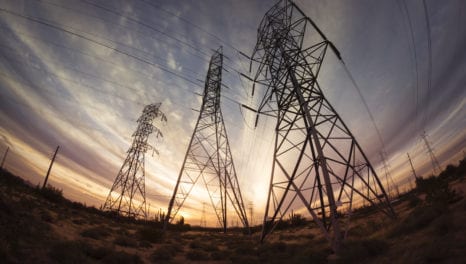Pettigrew defends EFR contracts
National Grid chief executive John Pettigrew has defended the contracts recently signed with energy storage providers for Enhanced Frequency Response, in the face of criticism that the contract prices are too low.
9th November 2016 by Networks

In an interview with Network, Pettigrew said National Grid was “pleasantly surprised that we were able to get that service at a price which will probably save customers around £200m, against the alternative of having traditional generators do it.”
In September, Rachel Cooper, head of energy storage at the Department for Business, Energy and Industrial Strategy said that the prices for service provision agreed by National Grid with seven energy storage providers might be too low to be profitable. She speculated that large storage firms had bid into the auction at “whatever cost” in order to “secure a foothold for an expansion of that service”. Other industry experts have said that EFR contracts were taken on as “loss leaders” by big storage providers and that smaller firms were therefore at a disadvantage in the auction.
In response to these comments, Pettigrew said: “Form the point of view of the SO, what we did was put a tender out. I mean, from a customer perspective, it’s a good thing isn’t it?”
He continued: “We were genuinely surprised to see 1.2GW offer up based on our need – 200MW…I guess for the people that are building that storage, they’ll be looking for revenue streams elsewhere to support that [low contract price].
Pettigrew also explained that the contract winners were able to offer more competitive EFR bids because many of them propose to build their batteries on existing generator sites which have “already got a connection”.
“I think that gives them a competitive advantage versus a new storage provider that decides they want to connect where there isn’t a connection point,” he said.
Other industry commentators have also observed that the EFR contracts, which last for four years, are much shorter than the projected lifespan of the contracted batteries. On this point, Pettigrew responded: “We were trying to strike the right balance between giving contracts that, for the providers, were actually worthwhile, but not so long that we find three years in that it’s actually not meeting the needs. 200MW is a good number to test this.”
Comments
Login on register to comment
Related content

Strategy & Management
Utility Week launches Network Excellence hub
Network magazine will cease operation as Utility Week creates exciting new home for technical, operational and innovation-related networks stories

Heat
Electric storage heating – a Cinderella solution
Why has electric storage heating been overlooked as we seek to tackle decarbonising domestic heat?

Heat
Prospects bright for landmark East London Heat Network
New Vattenfall-Cory partnership marks step towards record-breaking heat network capable of serving over 10,000 homes
Related supplier content
![‘Learning by doing’ on the road to net zero [test product]](https://networksonline.s3.amazonaws.com/products/images/3.jpg)
People & Skills
‘Learning by doing’ on the road to net zero [test product]
DSO director Andrew Roper discusses 'Learning by doing'

Heat
How E.ON. is helping the City of London become a zero emissions city
Discover Citigen. Deep in the heart of our bustling capital

Gas
Network explains heat networks
Commonplace in Europe and gaining in popularity here